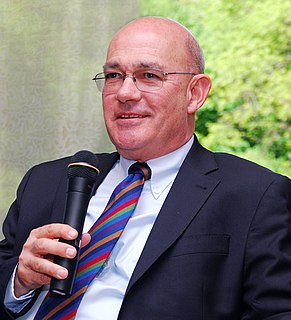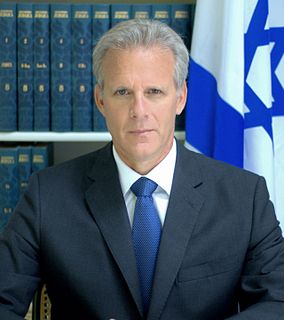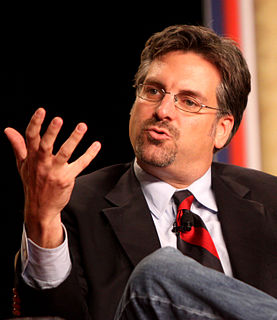A Quote by Yitzhak Rabin
President Sadat of Egypt made a historic breakthrough in 1977 when he put an end to war and convinced both Egyptians and Israelis that he was ready to make peace. He broke down the walls of suspicion and prejudice.
Related Quotes
We (Israelis) always think that we're at the center of everything. It's true that we didn't make peace with Egypt and Jordan, but with two men, President Sadat and King Hussein. It is possible that we will have to restructure the peace and our relations (so that they are) between one people and another.
Nobody ever predicted, a week before President Sadat came to Jerusalem in 1977, that his arrival would be the beginning of a peace process that would end up in an - unhappy - Israeli-Egyptian peace. We have seen peace with Egypt. We have seen peace with Jordan. We have seen the handshake between Rabin and Arafat - things are possible.
There are lots of signs that average Israelis want peace. But after such a long war - this conflict has been going on now for 120 years - you have a fifth generation being born into it on both sides. Such a conflict creates hatred, fears, stereotypes, and demonizations of the other. It would be an illusion to believe you can put an end to this overnight.
There's a long history in the Middle East of "bread intifadas," starting with 1977 in Egypt, when Anwar Sadat tried to lift bread subsidies. People rebelled and poured into Tahrir Square, shouting slogans against the government just like they did earlier this year. Sadat learned his lesson and kept bread subsidies in place, and so did a host of other Middle Eastern dictators - many of whom were propped up for years by the West, partly through subsidized American wheat.
Rosalynn said, "Jimmy, if we could only get Prime Minister Begin and President Sadat up here on this mountain for a few days, I believe they might consider how they could prevent another war between their countries." That gave me the idea, and a few weeks later, I invited both men to join me for a series of private talks. In September 1978, they both came to Camp David.
Obama is hardly the first president to seek rapprochement with our adversaries and reconciliation with our enemies, of course. But his determination to make nice - even in the face of clear and repeated rejection from the other side - is unparalleled. For Obama and his team, diplomacy with rogue regimes is an end in itself, and any deal, however one-sided, is a win, especially one that the White House communications mavens think that friendly media will call a 'breakthrough' or 'historic.'









































